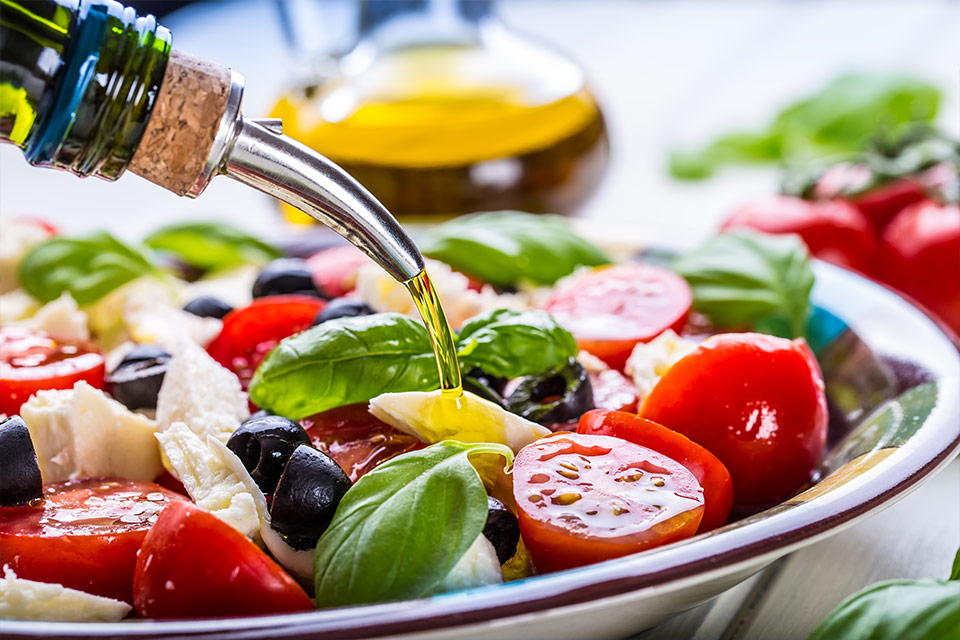Mediterranean Diet
Mediterranean Diet
The Mediterranean diet reflects the general nutritional characteristics of the Mediterranean countries. Large amounts of olive oil, olives, fruits and vegetables, cereals (mainly whole grains), legumes and oilseeds; Consumption of medium to high-level fish, medium-level eggs, poultry and dairy products, and red meat and low-level foods are some of the main characteristics of this diet.
The Mediterranean diet is one of the most versatile forms of nutrition that anyone can easily adapt to, and does not cause vitamin or mineral deficiencies in the body.

What are the benefits of the Mediterranean diet?
After it was noticed that the quality of life of people living in the coastal countries of the Mediterranean Sea is higher, this diet began to be investigated. Research has shown that this type of diet has many health benefits. The fact that this diet is rich in unsaturated fatty acids, sources of antioxidants and high in fiber affects health in many ways, from brain health to digestive health.
- Protects against Alzheimer’s disease, reduces the risk of depression and Parkinson’s disease.
- It has a protective effect against cancer and strengthens the immune system.
- Beneficial for cardiovascular health.
- Helps lower high blood pressure and bad cholesterol levels.
- Reduces the risk of type 2 diabetes.
- Reduces the risk of heart attack.
- Mediterranean diet

8 steps to a Mediterranean diet
- Increase your vegetable intake. Meals include green salads, baked vegetables, vegetable soups and vegetarian pizza.
- Change your eating habits with meat. Limit your consumption of red meat. If you prefer meat dishes, you can reduce the portion of meat and cook pasta, rice and boiled vegetables.
- Eat dairy products. Preference should be given to semi-fat dairy products. Yogurt and cheese can be included in your meal plan.
- Eat seafood 2 times a week. Fish such as herring, salmon, sardines and tuna are rich in omega-3 fatty acids. Seafood, oysters and mussels are also good for human health. The consumption of these products can be increased.
- Eat a vegetarian meal once a week. During the transition to the Mediterranean diet, you can apply a vegetarian diet in 1 meal to get used to eating olive oil and consuming vegetables. Bean and vegetable dishes can be flavored with spices. You can eat salads made from foods such as beans, chickpeas, and lentils.
- Use good oils. Oils such as olive oil, hazelnut oil, and peanut oil can be added to your daily meals. In terms of nutrition, the need for fat can be met by healthy liquid oils, walnuts, almonds, hazelnuts, and avocados.
- Choose whole grains. Whole grains are high in nutrients and, due to their high fiber content, also help prolong satiety. Mediterranean seeds such as bulgur, barley, black and red rice can be eaten.
- Eat fresh fruit for dessert. Fresh fruit is preferred for regulating glucose levels throughout the day. During festive meals, you can eat desserts and ice cream.
